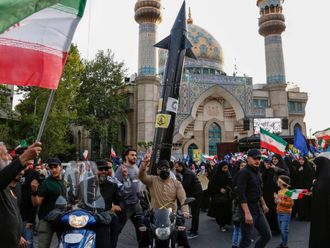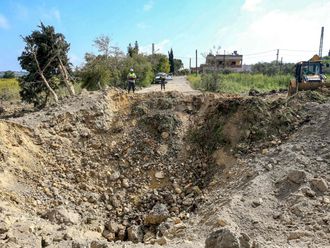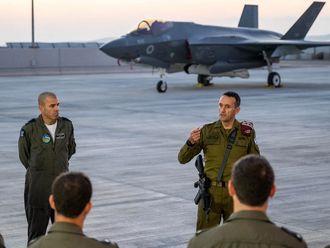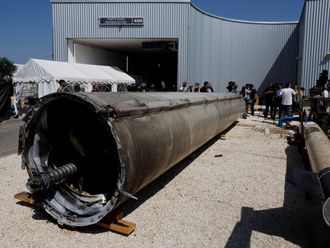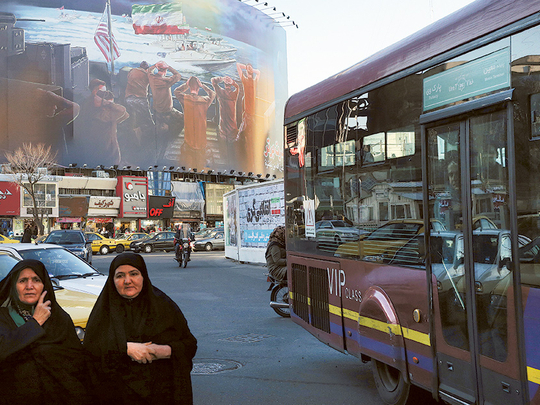
Tehran: It was supposed to be a regular weekly debate night for a group that meets to discuss movies in a middle-class Tehran neighbourhood. But on this particular evening, the 20 or so housewives, intellectuals and students in the group wanted to talk about only one thing: a possibly violent conflict between Iran and the United States.
Months had passed since members of the group had been so worked up, recalled one of the participants, Fariba Sameni, a 57-year-old translator. No one wanted to discuss film. Younger members were convinced that President Donald Trump would inevitably bomb Iran. “They shouted that their futures would be destroyed,” Sameni said.
The group’s leader, a professor, argued that Trump, with his background as a businessman, would ultimately make a deal with Iran. The professor’s argument was unconvincing, Sameni said.
“When I went home, I felt anxious and worried,” she said, “as if something really bad is about to happen.”
Gloom and dread can be felt across the Iranian capital, and some people blame not only Trump, but also their own leaders.
First Trump ordered a ban on travel by most Iranians to the United States. Then the Iranian military conducted a missile test, which was followed by a warning from Trump’s national security adviser that Iran was “on notice” for an undefined reprisal.
Amid all of this, Trump issued a barrage of Twitter posts accusing Iran of meddling in the region and being “#1 in terror.” He has also not missed an occasion to call the 2015 nuclear agreement — which many average Iranians see as their main lifeline to relatively normal lives — as a “really, really bad deal.”
In classrooms, taxis, hair salons and homes, many people in this nation of 80 million have gone from first dismissing Trump’s comments as political bombast to worrying about new sanctions and even military strikes by the United States. Iran’s supreme leader, Ayatollah Ali Khamenei, has responded to Trump with mocking sarcasm.
“Trump is unpredictable; our leaders are unpredictable,” Sameni said. “It suddenly feels as if we are on a sinking ship.”
When Trump was elected, many Iranian citizens did what they usually do: hope for the best. In recent years, they had become accustomed to feeling as if they were stuck riding a political roller coaster, at the mercy of others.
In 2015, when their leaders, to widespread surprise, struck a compromise nuclear deal with the United States and other world powers, many Iranians celebrated, hoping things would improve. The agreement lifted many economically crippling sanctions in return for verifiable guarantees of peaceful Iranian nuclear work.
And for most of the past year, life in Iran got a little better. While the economy continued to favour the wealthy, and corruption cases made many people cynical, one thing had changed: There was no more talk of military strikes or of conflict or war with the United States.
For the first time since 2002, when President George W. Bush called Iran part of the “axis of evil,” a sense of relative normalcy had taken hold of the capital. European investors were flowing in, oil sales went up and Iran even signed contracts to buy Airbus and Boeing planes to renew its ageing fleet.
“After the nuclear deal, everything looked up,” said Ali Sabzevari Fasfangari, 33, a magazine publisher. “It was far from perfect, but at least improving.”
He said the nuclear agreement had been regarded as a litmus test. The deal, he argued with friends, meant that reconciliation between Iran and the United States was possible, even after decades of estrangement. “It seemed it was a pivotal turning point: We were on our way back to becoming a part of the international community,” he said.
In the nearly three weeks since Trump’s inauguration, that feeling has completely dissipated.
At a barbershop in west Tehran, the Trump name was the only thing that could get a group of young men to turn away from the soccer match between Tehran’s popular Esteghlal team and a team from Qatar.
“We thought he was a businessman who would offer transactions with Iran, perhaps some investments,” said Ali Mohammadi, 26. Describing himself as a fun-loving young man seeking a decent job, Mohammadi said he was now thinking about what he would do if Iran came under bombardment someday. “It just feels as if we are powerless, at the mercy of international politics.”
When Trump started ridiculing the nuclear agreement during the presidential campaign, many in Iran thought he was merely trying to get votes.
Some middle-class Iranians, who get their news from the approximately 150 illegal Persian-language satellite channels that broadcast from overseas into Iran, started contending that Trump could actually be a blessing. His perceived friendliness toward Russia has long been seen as a plus in Iran, with many people expecting Russia’s president, Vladimir Putin, to rein in Trump’s anti-Iranian stances.
“But we cannot trust the Russians to do so,” said Housang Tale, a historian who is critical of Russia’s relationship with Iran’s leaders. “They have used us throughout history, taken our land and sold us out,” he said of Russia. “Who says they won’t trade Iran with the US for Ukraine? More pressure is coming.”
Others disagreed and insisted that Iran’s cordial relations with Russia would save their country from new sanctions and military strikes. “They will not allow America to attack us,” said Malek Elyasi, who owns a motorcycle repair shop. “Any war with Iran would turn into a global conflict because the Russians will support us.”
Iran’s defiance of the United States has been a pillar of foreign policy since the 1979 Islamic Revolution, and the ideology of independence from world powers is widely embraced even by Iranians who do not like their government’s politically repressive behaviour. But some question whether this ideology can sometimes undermine national interests.
“How about not test-firing a missile,” Sameni said. “Maybe that would reduce tensions.”
Those close to Iran’s foreign policymakers say there is no other way but to resist what Iran calls hypocrisy and double standards practised by the United States and other big powers.
“They say we can’t test-fire missiles, the US says, but India, Russia and Britain can do so without problems,” said Mohammad Marandi, a professor at Tehran University. “We cannot just allow them to dictate to us.”
Trump may just be posturing “to reinforce his negotiating position to get concessions,” the professor said. “We are not really afraid of him.”


